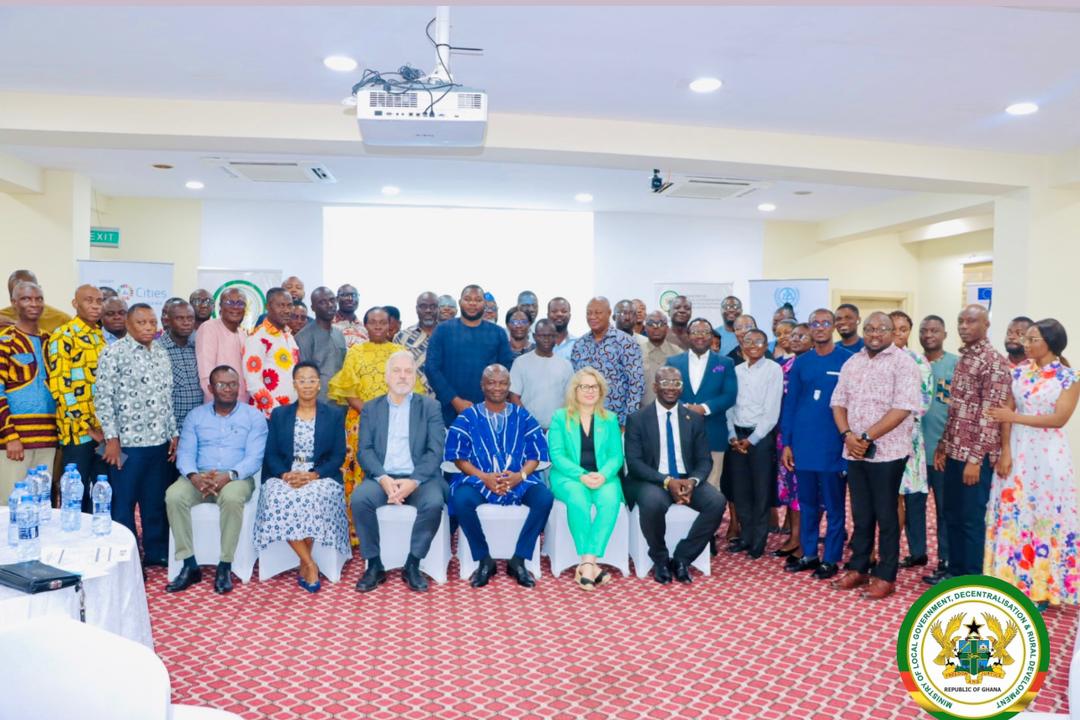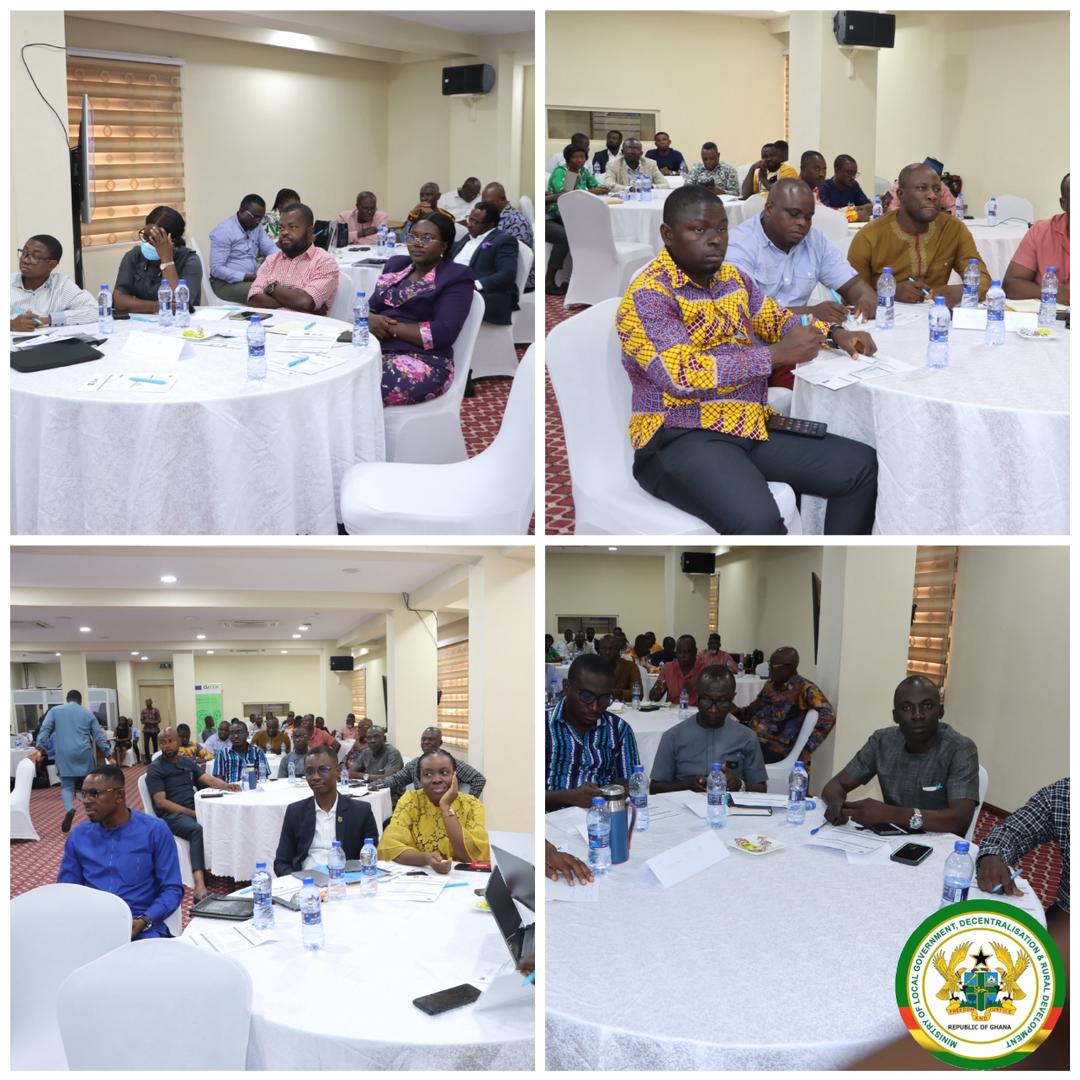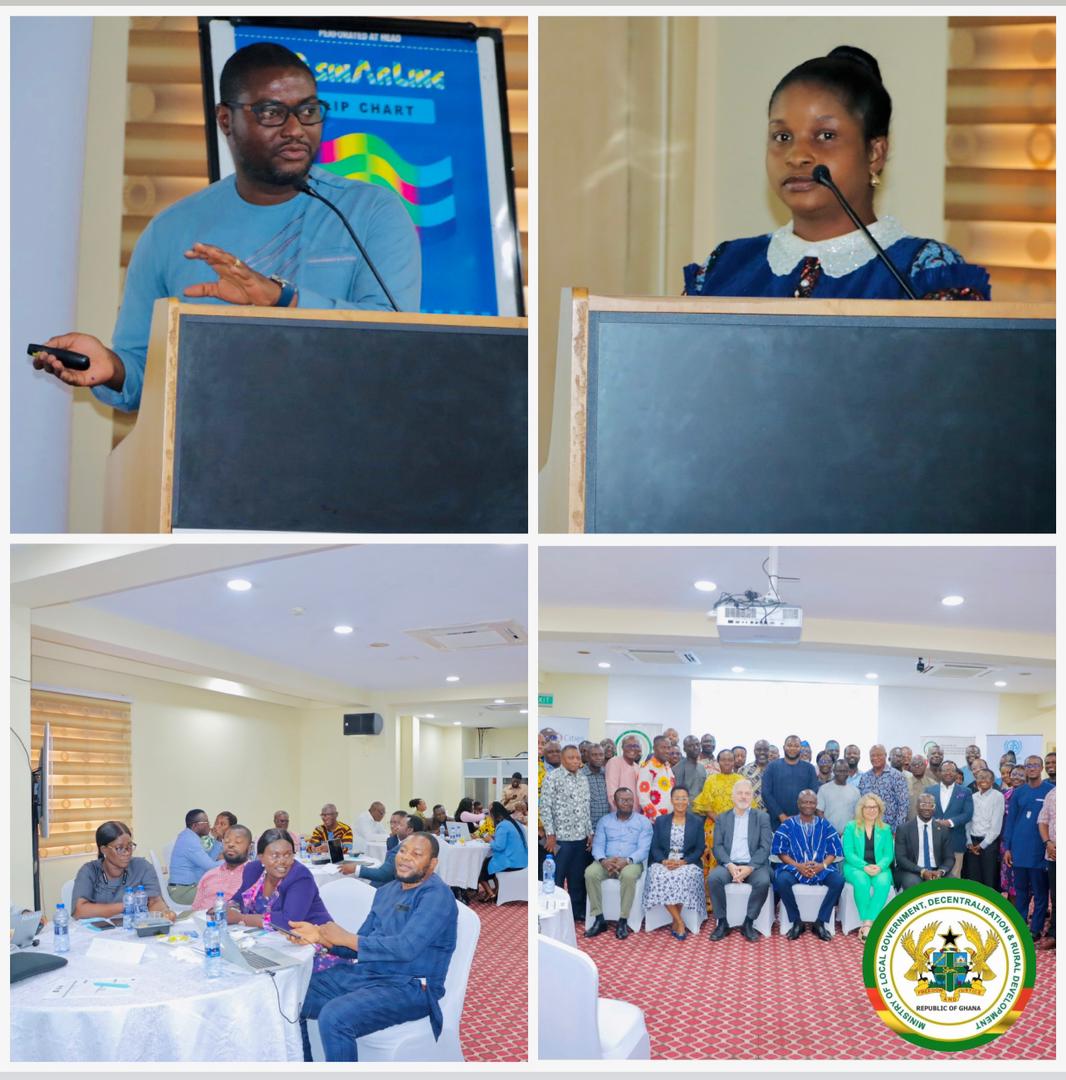Members of the District Assemblies Common Fund- Response Factor Grant (DACF-RFG) Technical Working Committee brainstorms on best practices for the successful implementation and effective conduct of the District Assemblies Performance Assessment Tool (DPAT) for an improved local government system.
They also discussed the update on work plans and budget of national implementing institutions, update on DPAT VI transfers, status of DPAT VII (2022) allocation, emerging issues from pre-negotiation/consultation meeting with the German Federal Ministry for Economic Cooperation and Development (BMZ), and the feasibility of commitment by the Government of Ghana (GoG) and Development Partners (DPs) for the District Assemblies Performance Assessment Tool (DPAT) VIII (2023).
The meeting was at the Ministry of Local Government, Decentralisation and Rural Development, and chaired by Hon. Miracles Aboagye, the Executive Secretary of the Inter-Jurisdictional, Ministerial Management Committee (IMCC).
Present at the meeting was the Chief Director of the MLGDRD, Amin Abdul-Rahaman, and representatives from the Ministry of Finance, Reconstruction Credit Institute (KFW), the Institute of Local Government Service (ILGS), State Secretariate for Economic Affairs (SECO).
Source: Sandra Owusu Asamoah
Public Relations Unit, MLGDRD















